

Mapa de la Ciudad de Manaus, Brasil
Fuente: Prefeitura Municipal de Manaus

Mapa de la Ciudad de Manaus, Brasil
Fuente: Prefeitura Municipal de Manaus
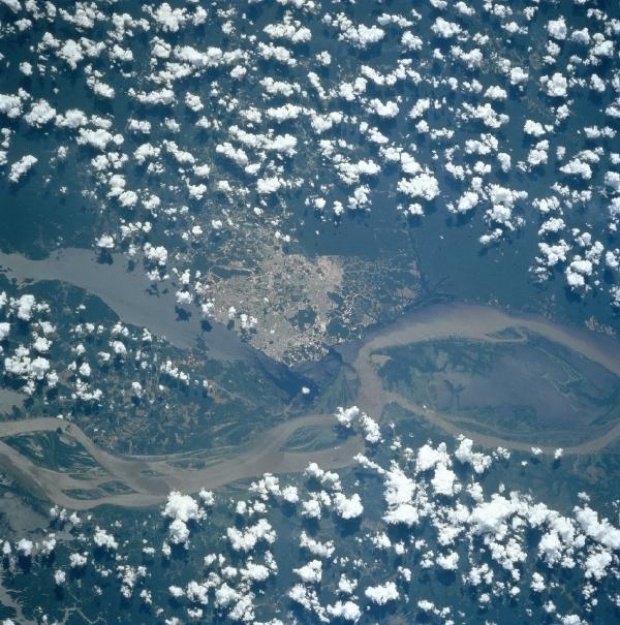
Manaus, Brazil July 1997. Located 1000 miles (1610 km) upstream from the mouth of the Amazon River is the growing city of Manaus. Manaus sits on the north bank of the Rio Negro 12 miles (18 km) from where it joins the Amazon River. Manaus is the chief commercial and cultural center of the middle and upper Amazon Basin and is an important river port. During the 1800's and early 1900's, it was the important city during the rubber boom of that era. With the rubber boom collapse, the city sank into decay, obscurity, and poverty. When the city was declared a free trade zone in the middle 1960's, Manaus became revitalized with new industry, rapid growth, and escalating prosperity. Manaus's growth and prosperity were further enhanced with the discovery of oil nearby. The city now has a population of over one million people. Manaus continues to grow and expanded and is fast becoming one of Brazil's most important commercial, industrial, and banking cities. The Amazon River is visible entering the scene from midway between the bottom left and left center (west) exiting the scene just below the center right (east). The Rio Negro enters the scene at the left center (northwest) of the image..
Fuente: NASA - National Aeronautics and Space Administration

Imagen, Foto Satelite de Manaus, Brasil
Fuente: NASA - National Aeronautics and Space Administration
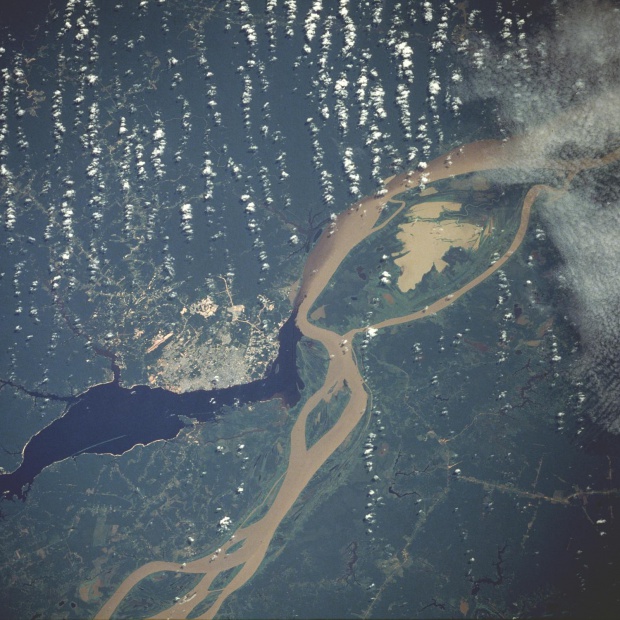
Manaus, Amazonas, Brazil January 1986. Two rivers and an urban area dominate this photograph. The largest city in the Amazon Basin, Manaus (with a 1994 population of 1.7 million), is located at the confluence of the Rio Negro (dark blue) and the Amazon River (lighter because of its high sediment content). The combined river flows eastward into the Atlantic Ocean. Situated approximately 800 miles (1290 kilometers) from the mouth of the Amazon River but accessible to oceangoing ships, Manaus is an important river port. This port city started to flourish in the late 1800s when the rubber boom was at its peak. Rubber, Brazil nuts, lumber, and assorted fruits are exported. In recent years, renewed interest in general development and the discovery of oil and manganese near Manaus have brought new importance to the city. A number of highways (linear, light-colored features), as well as a large commercial airport north of the city, are visible in the rain forest north and south of Manaus. North-south ground transportation is hindered because no bridges cross the Rio Negro or Amazon River. A large, sediment-laden lake (note irregular shoreline) is located east of Manaus between the main channel of the Amazon River and a smaller channel to the south.
Fuente: NASA - National Aeronautics and Space Administration
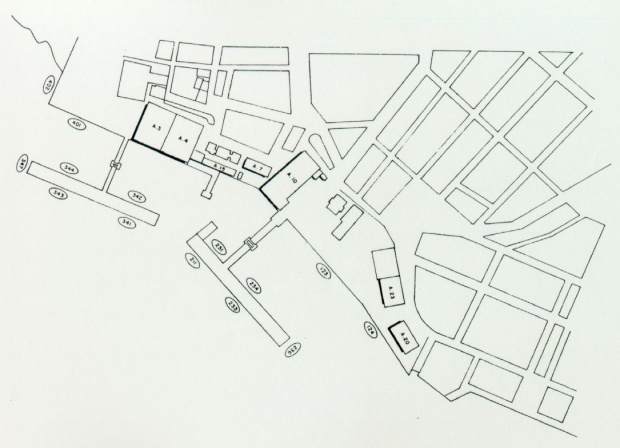
Mapa del Puerto de la Ciudad de Manaus, Brasil
Fuente: Ministério dos Transportes
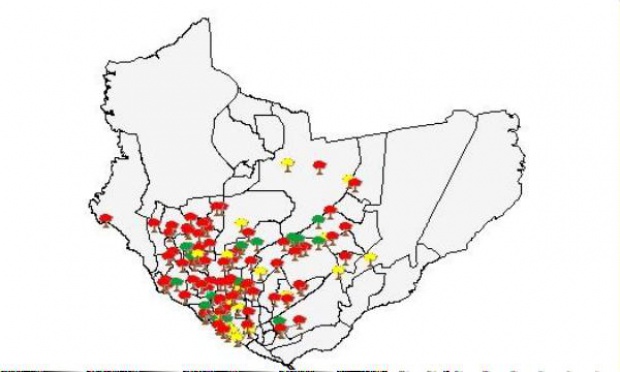
Mapa de los Parques de la Ciudad de Manaus, Brasil
Fuente: Prefeitura Municipal de Manaus
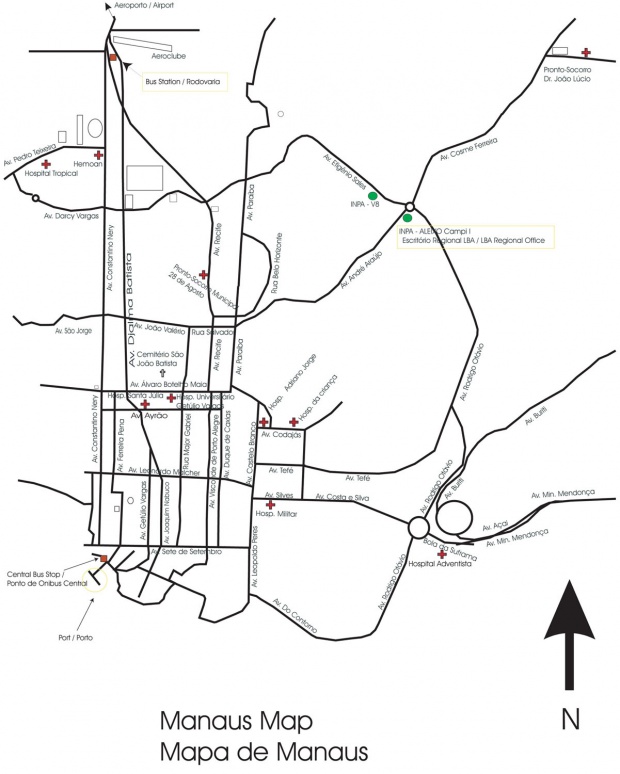
Mapa de Manaus, Estado de Amazonas, Brasil
Fuente: LBA-ECO Project